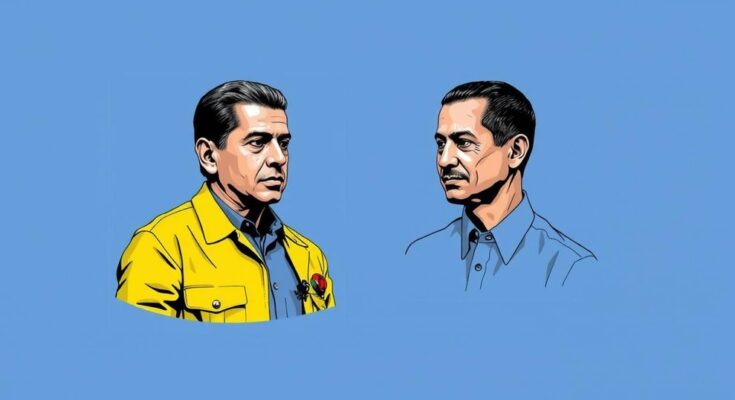The United States imposed sanctions on 21 Venezuelan officials for their roles in the repression of protests after the disputed July presidential election, which left at least 25 dead and over 2,400 arrested. The sanctions reflect concerns over anti-democratic practices and the recognition of opposition leader Edmundo Gonzalez by the U.S. amid questions surrounding the legitimacy of the election results.
The United States has enacted sanctions against 21 associates of Venezuelan President Nicolas Maduro, alleging their involvement in the suppression of protests following the disputed presidential election held in July. The U.S. Treasury Department indicated that serious actions against dissent resulted in the deaths of at least 25 protesters and the arrest of over 2,400 individuals. Officials noted that these sanctions aim to address the anti-democratic practices exhibited by Maduro’s regime post-election and to highlight the severe repression faced by Venezuelan citizens.
Bradley Smith, the acting undersecretary of the Treasury Department, commented, “Maduro and his representatives’ repressive actions in the wake of the Venezuelan presidential election are a desperate attempt to silence the voices of its citizens.” The May presidential election, which Maduro claimed to have won, was met with widespread assertions of fraud, particularly from the opposition, which presented evidence suggesting that opposition candidate Edmundo Gonzalez emerged victorious in reality. International monitoring organizations, including The Carter Center, have also expressed concerns, stating that the election did not fulfill the standards required for a democratic process.
Following the election, U.S. President Joe Biden’s administration recognized Gonzalez as Venezuela’s legitimate leader, exacerbating the diplomatic isolation faced by Maduro’s government. Moreover, the sanctions specifically target individuals within the security forces and cabinet members who are implicated in undermining electoral integrity and repressing protests. Approximately 180 current and former Venezuelan officials are subject to such sanctions, alongside nearly 2,000 who face visa restrictions related to their roles in electoral repression. Despite pressures, the Maduro administration has yet to release voting documentation supporting its claims of election victory, leading to increasing skepticism among both domestic and international observers.
The imposition of U.S. sanctions against Venezuelan officials stems from allegations of severe human rights violations and undemocratic practices during and after the controversial July 2024 presidential election. The election’s legitimacy has been widely questioned due to reports of repression during protests and the absence of credible election data being presented by the Maduro government. The U.S. response, which includes the recognition of opposition leader Edmundo Gonzalez, highlights ongoing tensions between the U.S. and Maduro’s administration, as well as the regional implications involving Latin America’s stance towards Venezuela’s governance.
In summary, the sanctions imposed by the United States against Venezuelan officials underscore a response to alleged electoral fraud and repression following the July presidential election. The actions taken aim to reinforce international pressure on Maduro’s regime amid claims of widespread human rights abuses and a lack of transparency in electoral proceedings. With growing diplomatic isolation and continued scrutiny from the U.S. and other nations, the future of Venezuelan governance remains uncertain.
Original Source: www.aljazeera.com




